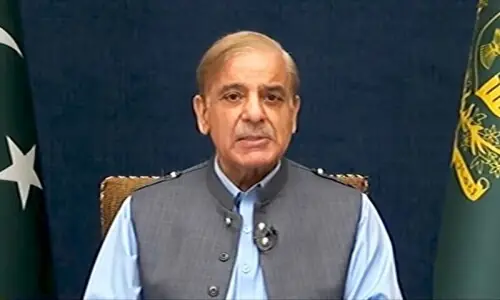MUMBAI: A leading Indian rationalist thinker, who campaigned for a law to eradicate superstition in a country noted for its mystics and gurus, was shot dead on Tuesday.
Two gunmen on motorbikes fired at Narendra Dabholkar, a medical doctor who had faced accusations of being anti-religion, as he was taking his morning walk in the western city of Pune in Maharashtra state, its police chief said.
“He was shot dead this morning, our investigations are on,” Pune police commissioner Gulabrao Pol told AFP.
Pol said detectives were trying to establish the motive behind the killing and had no immediate suspects. “There has been no breakthrough so far, but we are working on all angles,” he said.
Dabholkar more than two decades ago founded the Maharashtra Andhashraddha Nirmoolan Samiti – the Committee for the Eradication of Blind Faith – that aimed to change the mindset of India’s deeply superstitious population.
Dabholkar, known for his campaigns to promote progressive and scientific thought, had for several years been lobbying for Maharashtra state’s parliament to pass legislation banning superstition and black magic.
Two years ago, in an interview with AFP, he rejected critics’ charges that such a bill was anti-religion.
“In the whole of the bill, there’s not a single word about God or religion. Nothing like that. The Indian constitution allows freedom of worship and nobody can take that away,” he said. “This is about fraudulent and exploitative practices.”
Over the years, Dabholkar had also challenged some of India’s “godmen”, self-styled Hindu ascetics who have huge followings, over their claims to have performed miracles.
He also campaigned against animal sacrifices during some religious rituals.
Dabholkar, whom Indian media said was aged 71, was editor of a magazine called “Sadhana” or spiritual practice and was devoted to the propagation of progressive thought.
Prominent rationalist Sumitra Padmanabhan of the independent Humanists’ Association condemned the killing. “Rationalists all over India are attacked as India is still a very superstitious country,” Padmanabhan said by telephone from Kolkata.
“There are laws against dowry, witch-hunting and child marriages but such practices are still thriving in the country,” she told AFP.
“Scientists don’t fight with each other, rationalists also don’t – but in the name of religion there is conflict because people with extremist views are thriving in India because it is very regressive country.”
Gurus and spiritual leaders play an integral role in the daily lives of thousands of Indians seeking a pathway to happiness and enlightenment.
Superstitious beliefs are rampant in the fast-developing and officially secular country, where Hinduism dominates but a diverse range of ethnic groups and religious practices co-exist.
Maharashtra Home Minister R. R. Patil condemned the shooting and said those responsible would be brought to justice.






























